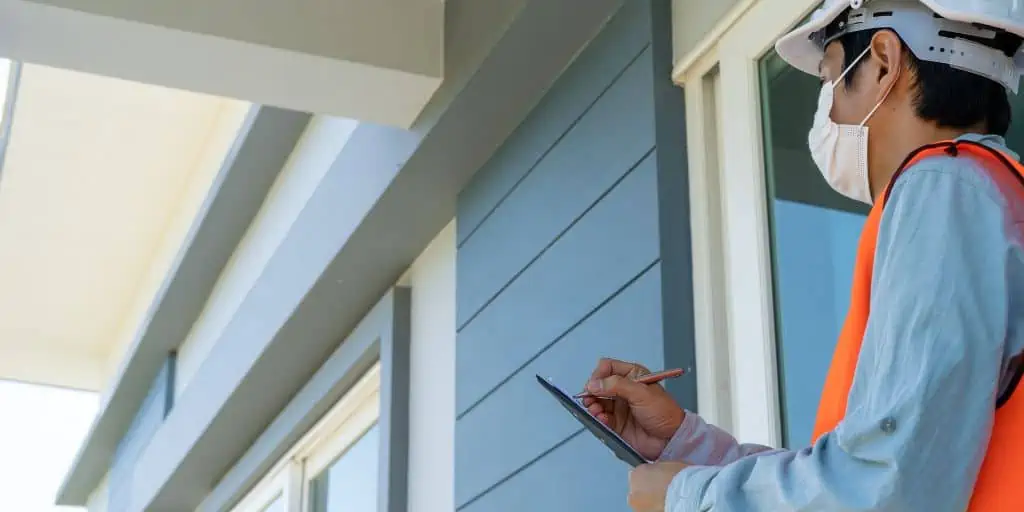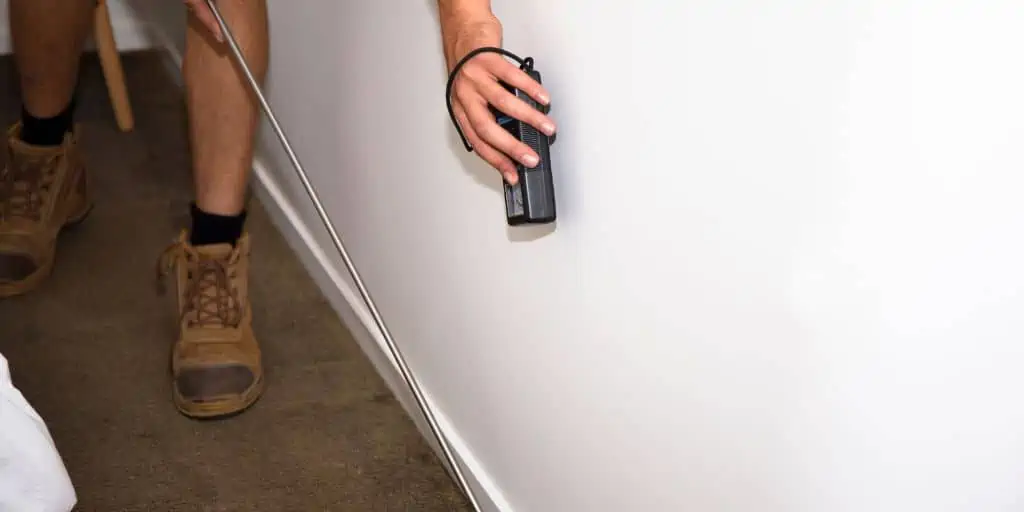What Is Home Inspection?
Why Is Home Inspection Important?
A home inspection is a crucial aspect of the home buying process. While not always required[1], a home inspection is a major part of due diligence and can help buyers make the best decision before purchasing a property[2]. It can also sometimes be used as a contingency, allowing a buyer to back out of a deal if the property is structurally unsound[3].
A professional called a home inspector carries out a home inspection. A home inspector may need to be bonded and licensed in some jurisdictions.
Home inspections are essential for identifying issues, defects, and hidden damage in a home, which can help the buyer avoid potentially costly repairs and replacements later on. In addition, if the inspection reveals such issues, the buyer may negotiate with the seller to have them repaired or the price of the property reduced[4].
How Does a Home Inspection Work?
A home inspection is usually performed after the buyer and seller sign a purchase agreement. Most buyers, however, require sellers to include an inspection contingency clause in the contract. This clause allows the buyer to schedule a home inspection after the purchase agreement is signed, and it provides them with an exit strategy if the inspection reveals issues that the buyer is not prepared to deal with.
After the signing, an inspector may arrive within five to seven days. Meanwhile, depending on the size, age, and type of the home, an inspector can complete the evaluation in two to four hours[5]. Buyers and their agents are welcome to accompany the inspector during the inspection to observe, ask questions, and learn more about the property.
The inspector then writes a report detailing the property’s structural condition. Some inspectors will include photographic evidence of any problem they encounter, while others may make recommendations (and some do both). The buyer can anticipate receiving the report within two days[6].
A seller can also arrange for a pre-listing inspection. This allows the seller to make improvements and repairs ahead of time in order to increase the property’s sale price[7].
BY THE NUMBERS: Home inspection costs can vary depending on the location and size of the property, but the typical cost ranges from $350 to $600.
Source: Bankrate
What Does a Home Inspection Include?
The scope of home inspection coverage varies by state. That said, inspectors generally adhere to their Standards of Practice[8], which require them to examine the property’s visible and accessible components.
Here are some examples[9]:
- Structural. The home inspector looks for issues with the property’s structural integrity and stability. This inspection covers the walls, ceilings, stairs, and drainage, and notes irregularities like bowing or sagging in the walls or ceilings, cracks, misaligned windows, and the poor condition of flooring and framing.
- Exterior. The home inspector checks the condition of wall coverings, the siding material, exterior paint, grading, and water drainage. Some inspectors may also inspect the grounds, i.e., the area immediately around the structure, including the trees adjacent to the house.
- Roof and attic. The inspector looks at the material and condition of the roof and checks for signs of damage, like missing shingles or bald patches. The inspection also uncovers damage to gutters and rain guards, water intrusion in the attic, ventilation issues, and insulation deficiencies.
- Basement. The inspector also looks at the condition of the basement, the foundations of the property, and any traces of moisture damage.
- Plumbing. This includes checking for damaged or leaking water, drainage, and gas pipes The inspector also examines the water heater, drains, toilets, sinks, bathtubs, fixtures, faucets, and water pressure.
- Electrical. The home inspector examines electrical wiring and if it is up to code by assessing the condition and location of panels and wire connections. The inspector also checks electrical outlets and lighting.
- HVAC. HVAC stands for heating, ventilation, and air conditioning. The inspector attempts to detect trouble with climate control equipment and verifies their condition, age, and type.
- Safety. Finally, the home inspector examines the condition and performance of fire alarms, fire sprinklers, handrails and guardrails, stairs, carbon monoxide detectors, and garage door openers.
What Does a Home Inspection Not Include?
Here are some areas that are generally not covered by a basic home inspection[10]:
- Pest or termite issues.
- Swimming pools and spas.
- Mold or asbestos problems.
- Water quality and septic inspection.
- Radon test.
- Soil quality.
- Trees and landscaping.
- Paint, wallpaper, and interior finishes.
- Underground septic system.
- Building code violations.
Some of these, such as radon testing and wood-destroying organism (WDO) inspections for termite infestations, are specialized types[11] of home inspections. Buyers may contract specialists for these services.
Takeaways
- A home inspection report details issues in the property, its structure, and its systems, carried out by a qualified home inspection professional.
- While optional, most buyers will want to have an inspector evaluate the safety and structural integrity of the house they will buy to prevent costly repairs or replacements.
- Sellers may also have the property inspected before they list it on the market, allowing them to increase the sale price.
- A home inspection checklist varies from state to state, but inspectors generally inspect visible and accessible home components based on their Standards of Practice.
Sources
- Chan, A. (2022.) What Should a Home Inspection Include? PropertyNest. Retrieved from https://www.propertynest.com/blog/sales/home-inspection-buying-house/
- Corporate Finance Institute. (n.d.) What Is Home Inspection? Retrieved from https://corporatefinanceinstitute.com/resources/knowledge/other/home-inspection/
- Fontinelle, A. (2022.) Importance of Home Inspection Contingency. Investopedia. Retrieved from https://www.investopedia.com/articles/mortgages-real-estate/08/home-inspection.asp
- Realty Times. (2021.) The Importance of Home Inspections. Retrieved from https://realtytimes.com/consumeradvice/buyersadvice/item/1043361-the-importance-of-home-inspections
- Miles, H. (2022.) How Long Does a Home Inspection Take to Complete? Home Inspection Insider. Retrieved from https://homeinspectioninsider.com/home-inspection-complete/
- Wood, K. (2021.) What To Expect From A Home Inspection. NerdWallet. Retrieved from https://www.nerdwallet.com/article/mortgages/home-inspection
- Gassett, B. (2018.) Pre-Inspections: Pros and Cons of a Pre-Listing Home Inspection. Maximum Real Estate Exposure. Retrieved from https://www.maxrealestateexposure.com/pros-cons-pre-listing-home-inspection/
- American Society of Home Inspectors. (n.d.) Standard of Practice. Retrieved from https://www.homeinspector.org/Resources/Standard-of-Practice
- Rocket Mortgage. (2022.) A Buyer’s Home Inspection Checklist. Retrieved from https://www.rocketmortgage.com/learn/home-inspection-checklist
- Hansen, K. (2021.) What’s Not Covered in a Home Inspection? 8 Items Home Inspectors Pass Over. HomeLight. Retrieved from https://homelightblog.wpengine.com/whats-not-covered-in-a-home-inspection/
- Wood, K. (2020.) Types of Home Inspections Buyers Should Know. NerdWallet. Retrieved from https://www.nerdwallet.com/article/mortgages/types-of-home-inspections








